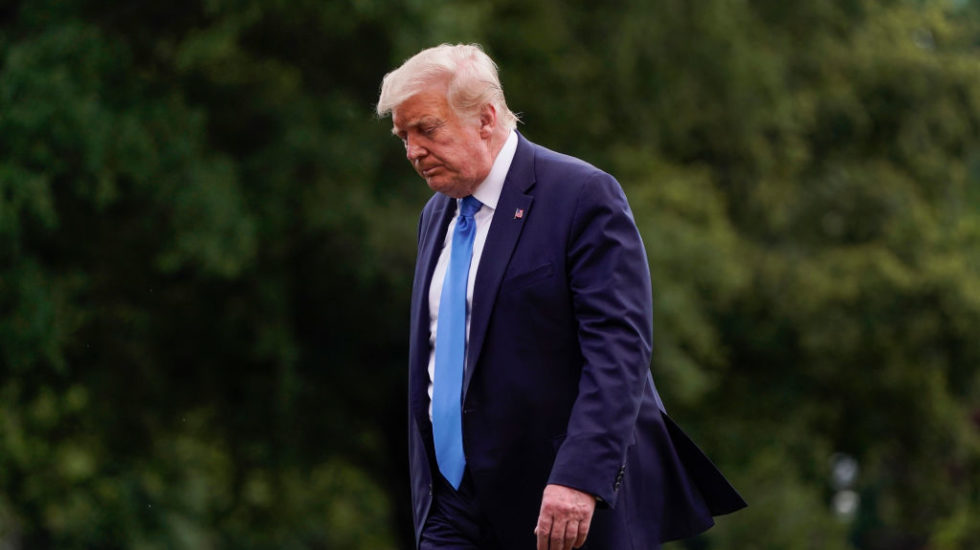Serious questions about President Trump’s health abruptly jumped back into the headlines on Tuesday, thanks in part to an out-of-the-blue Twitter post by Trump himself.
It involves the president’s surprise visit last November to the Walter Reed National Military Medical Center in Bethesda MD — and new, tweeted suggestions that the visit was prompted when Trump suffered a series of “mini-strokes.”
At the time, the White House tried to shrug it off, saying Trump, 74, had undergone a “quick exam and labs” as part of a routine annual physical.
But on Tuesday, before anyone of consequence had brought up the matter, Trump explicitly denied that he had not suffered any such strokes before the November hospital visit — then tried to cast doubt on the health of his presidential opponent, Joe Biden.
“It never ends!” Trump exclaimed in the tweet, describing the “mini-strokes” speculation as “FAKE NEWS.”
“Several journalists noted that nobody had [previously] reported on the ‘mini-strokes’ Trump referenced in his tweet,” said Forbes, quoting an acerbic remark from Times reporter Maggie Haberman:
“So the president is denying something that no one has actually reported.”
All this coincided with the publication Tuesday of “Donald Trump v. the United States: Inside the Struggle to Stop a President,” by Michael Schmidt, a Pulitzer Prize-winning Times correspondent.
In the book, reviewed by the Times on Monday, Schmidt reports that Vice President Mike Pence was placed “on standby,” shortly before the Walter Reed visit.
Schmidt says he learned “in the hours leading up to Trump’s trip to the hospital, word went out in the West Wing for the vice president to be on standby to take over the powers of the presidency temporarily if Trump had to undergo a procedure that would have required him to be anesthetized.”
No anesthetic was administered and Pence never had to sit in for his boss.
Importantly, Schmidt’s book contains no reference to any strokes or other cerebral issues, as the author emphasized in a tweet of his own on Tuesday.
But the Twitterverse snapped to life, spotlighting the November incident, including speculation — without evidence — that Trump may have suffered one or more strokes.
Yet on Twitter, several physicians chimed in with their own observations from video of Trump’s hospital visit.
Monday on CNN, the network’s chief medical correspondent, Dr. Sanjay Gupta, called the Walter Reed visit “a really deep mystery,” adding that there are “a lot of things [about it] that have never made sense.”
Trump’s personal physician, Dr. Sean Conley, countered on Tuesday with a statement denying that the president has suffered any sort of stroke and that he “remains healthy and I have no concerns about his ability to maintain the rigorous schedule ahead of him.”



